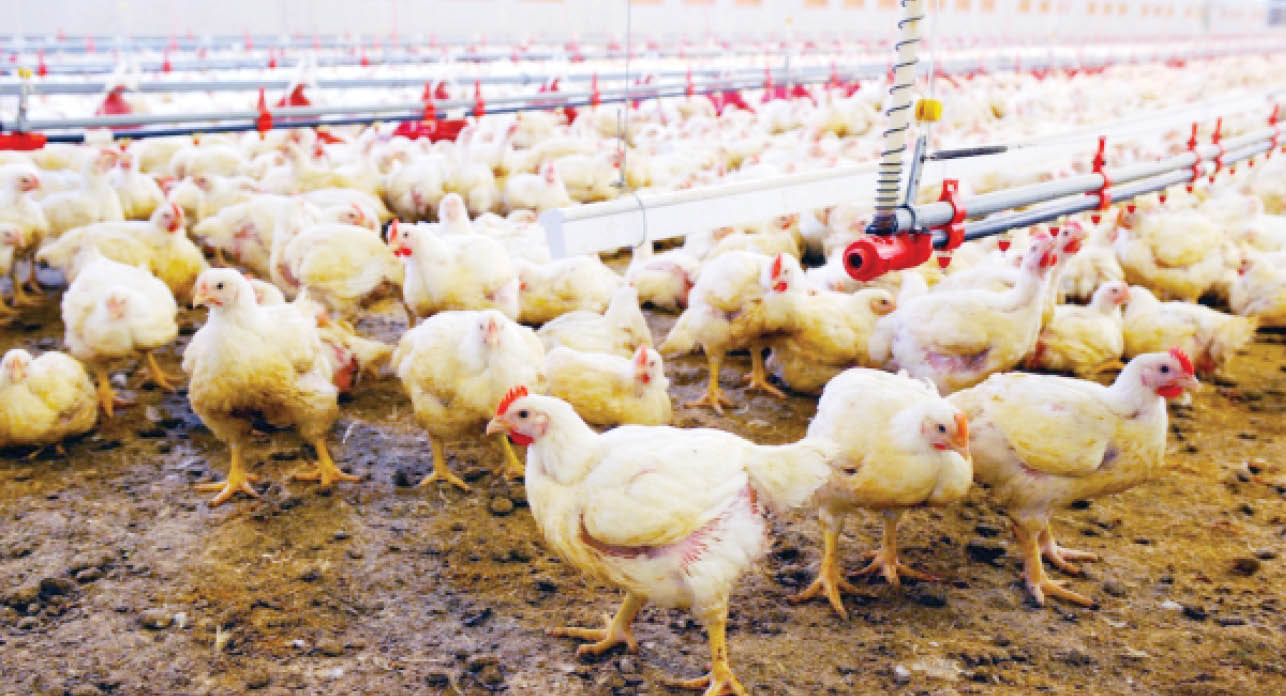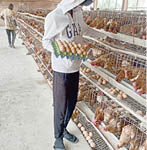In addition to the hike in prices of feeds and chicks that the poultry farmers are battling with, many of them are now losing their birds to the excess heat being experienced in most parts of the northern states.
Many poultry farms have been recording losses as their birds are dying without showing any signs of sickness.
The situation, according to some sources, has forced some of the farms to close down while others resorted to selling the birds at an earlier stage.
A small-scale poultry farmer in Kano, Gambo Moh’d Idrís, told our reporter that he lost more than 70% of his birds to the heat wave, adding that it took him time to realise that the heat wave was the cause.
“I started noticing that every day, a chick or two died and it was so disturbing because they didn’t show any symptoms of being sick. I called an expert who later told me it was the heat wave. There are many farms that have incurred more losses than me,” he added.
- Food Security: AfDB partners with BUK centre on climate adaption, entrepreneurship
- Adamawa cancels right-of-way fees for ICT infrastructure
It was also revealed that many cottage poultry farms around Tsamiya in Gezawa LGA, Kureke in Kumbotso LGA, and Dan Kutture in Ungoggo LGA have been affected by the heat wave and their birds have been dying daily.
Another farmer, Jibril Ali, revealed that he was lucky to have sold his chickens during the Sallah festival when the chicks were just four weeks old.
He explained that though that wasn’t his plan, he had to do so to avert incurring more losses. “When I noticed that the birds were dying every day, I resolved to sell them off and that was how I sold them during the Sallah festival even though they hadn’t reached the desired time and growth,” he said.
When contacted, the state chairman, Poultry Farmers Association of Nigeria (PAN), Dr Usman Gwazo, revealed that the situation was a perennial happening that usually occurred when the temperature became very hot. According to him, this year’s deaths have been so overwhelming, especially in the informal sector of the business because the heat has been very high.
The state chapter chairman added that findings showed that with an increase in temperature above 37 degrees centigrade, the output of poultry will reduce by 5% on each 37 degrees centigrade added. He also stated that the informal wing of the association incurred more losses than the registered members of the association.
“At the association level, we have been on top of the situation. Our members have been sensitized on measures to be taken on the matter at hand.
“We also devised measures on visiting farms and rendering services on-site locations, structures formation as well as all measures that need to be taken during instances like this. By doing so, we reduced the losses in members’ farms,” he said.
The chairman also revealed that the high cost of chicken and other poultry products in the coming days is inevitable as the high cost of feed, coupled with the current death of birds would definitely cause a price hike.
However, a Kano-based veterinarian, Dr Abubakar Adamu, advised farmers to seek expert advice when establishing a poultry farm, adding that ventilation is very vital in poultry farm settings as it allows for easy flow of air especially during the heat period.
Dr Adamu also stated that the poultry mortality rate is usually inevitable in periods like this because the normal body temperature of a chicken is above 37 degrees centigrade, stressing that the additional temperature is definitely not favourable to the birds and would no doubt result in poultry deaths.
“Birds mortality rate is bound to increase in periods like this, when the heat is at over 39°C. Therefore, it is very important that poultry farmers learn some basic measures that are required to manage the mortality rate.
“There is a need for the provision of adequate ventilation and also the need to control the temperature level in farms. These would no doubt reduce the bird’s mortality rate and thereby save the situation,” he said.

 Join Daily Trust WhatsApp Community For Quick Access To News and Happenings Around You.
Join Daily Trust WhatsApp Community For Quick Access To News and Happenings Around You.


